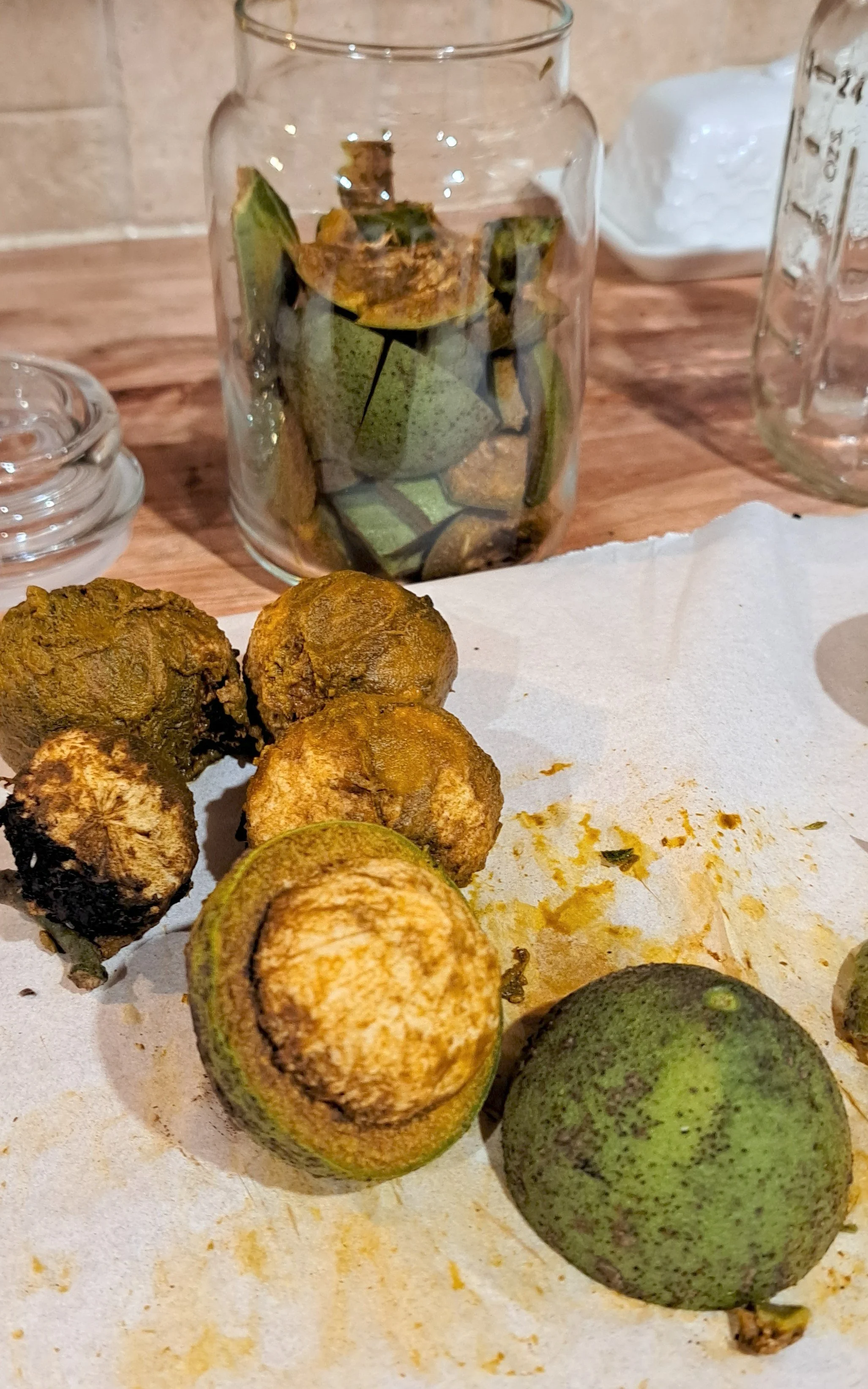DiY Black Walnut Salve
There’s something deeply satisfying about turning foraged finds into useful, everyday remedies. One of my favorite old-fashioned salves to make is Black Walnut Salve. Black walnut hulls have a long history of use in traditional herbalism, especially for their strong antifungal and skin-supporting properties. When paired with other natural ingredients, they create a salve that’s handy to keep around the house.
Green Black Walnuts
Gathering and Infusing the Oil
The heart of this recipe starts with fresh green black walnuts. The hulls (the green outer layer, not the shell or nut inside) are where the good stuff is. I cut the hulls off and immersed them in olive oil. To draw out their beneficial properties, I gently warmed the mixture in a water bath for about two hours, then set it aside in a dark spot for a couple of weeks to continue infusing.
This step alone is a beautiful process—watching the oil turn a rich, dark shade as it absorbs the essence of the black walnut hulls.
They start turning black as soon as you cut them.
Making the Salve
Once the oil is infused, it’s ready to be turned into a salve. The addition of beeswax gives the oil a solid, balm-like texture, while coconut oil adds extra antifungal support and creaminess. To boost the effectiveness, I like to add a touch of tea tree essential oil and clove essential oil, both known for their antifungal and antiseptic qualities.
Infused Black Walnut Oil
Ingredients (makes about 4 oz):
3 Tbsp black walnut hull infused olive oil
1 Tbsp coconut oil (extra antifungal and helps texture)
1 Tbsp beeswax pastilles (for firmness – add more if you want a harder balm)
6 drops tea tree essential oil
3 drops clove essential oil
Directions:
Combine infused olive oil, coconut oil, and beeswax in a double boiler or heat-safe jar.
Warm gently until the beeswax is completely melted, stirring to blend.
Remove from heat and let cool slightly.
Stir in essential oils. Mix well.
Pour into sterilized 2 oz tins or jars.
Allow to cool fully before sealing.
Cooling and Setting up.
Tips and Notes
If you want a softer ointment, reduce the beeswax slightly. For a firmer balm, add a little more.
Always label your jars with the name, ingredients, and date made.
Store in a cool, dark place to preserve freshness.
Closing Thoughts
There’s a certain joy in crafting something so practical from the gifts of nature around us. Black walnut salve feels like a link to simpler times, when people worked with what they had on hand to care for themselves and their families.
If you’ve been curious about herbal salves, this is a rewarding one to try. With a little patience and a few simple ingredients, you’ll have a natural, handcrafted salve ready whenever you need it.
Stay rooted,
Roxanne



